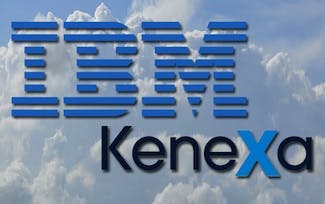Last month, I was in Orlando at the annual IBM Connect conference.
Last year, this event was the “coming out” party for Kenexa, which had just been acquired by IBM, and all the talk then was about what Kenexa would bring to Big Blue’s future business.
Well, now the future is here, and IBM has taken that next big step with Kenexa and announced what all the talk from last year was really about — the new IBM Kenexa Talent Suite.
Leveraging workforce analytics
Here’s how Kristin Burnham described it in Information Week:
The IBM Kenexa Talent Suite incorporates new and previously developed applications from IBM and Kenexa, which IBM acquired in 2012 for $1.3 billion. Using big data analytics, the suite evaluates employee information such as work experience, social engagement, skill development, and individual character traits to fine-tune the recruitment process and helps employers understand their workforce, the company said. This could foster things like better targeted candidate searches through social recruiting sites such as LinkedIn. …
In its press release, IBM cited its soon-to-be-released study that surveyed 342 HR executives and found that only 50 percent of organizations use workforce analytics. Even fewer apply predictive analytics for decision-making in areas such as sourcing and recruiting (7 percent), employee engagement and commitment (9 percent), talent development (10 percent), retention (13 percent), and collaboration and knowledge sharing (3 percent).”
To put it a little more simply, IBM is pushing hard into “Big Data” analytics for HR, and the IBM Kenexa Talent Suite is a big indicator of how they mean to do that.
A major initiative by IBM
As Bill Kutik, who recently stepped down as co-chair of the annual HR Tech conference, noted in Human Resource Executive:
(The) IBM Kenexa Talent Suite … (is) a major part of IBM’s ongoing Smarter Workforce initiative, scheduled for a first release by April. … At a time when more and more companies seem to want one unified system with core HR and talent management, IBM has chosen to take eight software elements of Kenexa and a passel of existing and new IBM technologies (including the first social software) to offer a stand-alone talent-management suite without core.”
If you’re not quite sure what all of that means, it’s this: IBM is leveraging their Kenexa acquisition into a suite of applications focused on HR and talent management, and data analytics, and that is going to become more and more important as managing talent becomes a more critical part of every organization’s growth strategy.
I’m not sure who said it, but one of the speakers at the IBM Connect event described the role of analytics as “Helping organizations make the best decisions about their businesses to drive the best possible outcomes.”
If you’re not sure about what “Big Data” really means to you and your workplace, that’s a pretty good description. And, it’s what IBM ultimately had in mind when they acquired Kenexa. I’m guessing that next year’s IBM Connect event will focus on how well the IBM Kenexa Talent Suite is doing that.
How Conan O’Brien handles his interns
Of course, there’s a lot more than what was going on at IBM Connect in the news this week. Here are some HR and workplace-related items you may have missed. This is TLNT’s weekly round-up of news, trends, and insights from the world of talent management. I do it so you don’t have to.
- An alternative to performance reviews? — I sometimes find great stuff in The New York Times’ You’re the Boss? small business column, and this one is no exception. It digs into the issues with performance reviews, offering another alternative: “My last post documented my frustration with the performance-review process. But I don’t like to complain about something that doesn’t work without thinking of a replacement, so over the last several years, I’ve developed a new model I call performance coaching.”
- Even with no job titles, you still have workplace hierarchies. There has been a lot of talk recently (including here) of the impact of getting rid of job titles in the workplace, but as the http://blogs.hbr.org/2014/01/a-company-without-job-titles-will-still-have-hierarchies/ rightly points out, “There is evidence to support how smashing management silos within an organization not only saves money, but also supports nimble decisions unencumbered by the myopic judgments of a handful of executives. On the flip side, critics point to the way human nature takes over when hierarchical structures of power disappear along with the titles that denote them.”
- Cutting spousal benefits and the fallout that seems to happen. More companies are starting to cut spousal benefits for employees whose spouse also works and gets covered at their place of employment. But as this story on NPR shows, “Some companies are simply charging more for spouses who work and are eligible for coverage at their own job. Others, like UPS, are dropping spousal coverage entirely. But a new study from the Employee Benefit Research Institute suggests that dropping spousal coverage might not be such a money-saver after all. That’s because other companies are likely to do the same thing, thus driving every worker back to his or her own company’s health plan.”
- How Conan O’Brien handles his interns. This is all pretty funny, but how many HR issues here can you identify?
